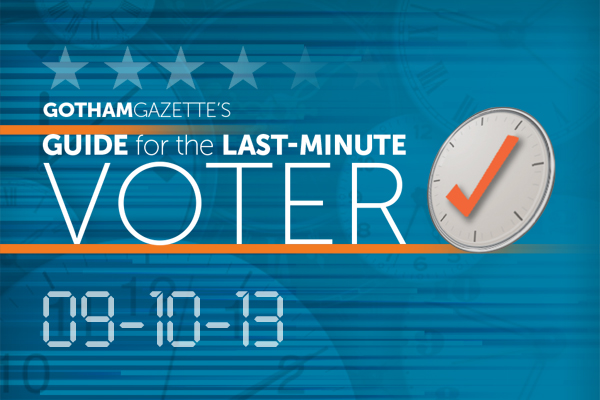
Gotham Gazette is in trouble, and we need your help.
We need you and other New Yorkers who care about an essential source of local news to donate today so we can continue to publish into 2021.
Let me be clear: this is not the usual end-of-year fundraising. This is not hyperbole. Like so many other organizations, the coronavirus pandemic has been devastating for us. Without significant financial support, we simply will not be able to continue to do what we do and at the level we do it. We are facing dire circumstances and the possibility of having to furlough or let go of staff and scale back publishing the high-quality local journalism that we produce every day.
This is notice we’ve been trying to avoid for months, seeing revenue fall significantly due to the pandemic while trying to raise new funds and all the while continuing to produce important news reporting every day amid major crises facing New York City and State. We’ve actually increased both the frequency and impact of our reporting amid the pandemic and even before the end of November readership was up for the seventh straight year.
But unfortunately that does not mean the funding follows, especially for a local nonprofit news publication.
That is why we desperately need you to give today. Please click here now and give what you can.
And we need you to please encourage others to give as well. This is an all-hands-on-deck moment for us and anyone who cares about Gotham Gazette’s existence. Please join us on social media -- via Facebook, Twitter, or otherwise -- or by email to ask others to give, so that we can spread the word and have a chance to raise what we need to keep Gotham Gazette going and with our current team in place.
Our reporting holds New York government accountable and gives hundreds of thousands of New Yorkers in-depth insights into major public policy and political issues, elections, and more. Gotham Gazette digs deeper than other publications to expose government mismanagement, broken promises, and abuses, causing elected and appointed officials and candidates for office to change the way they do business for the public good.
But Gotham Gazette is at risk. And I don’t say that lightly.
The usual revenue that we count on to support our small but strong team has been drastically diminished by the pandemic, which has limited our usual fundraising events and led some large funders to cut back. While we’ve been able to hold on throughout 2020, we won’t be able to make it very far into 2021 unless we immediately raise the funds necessary to keep operating at this level from donors, including our regular readers, but also others who simply believe in the value of quality local journalism. Otherwise, we will have to cut back staff, publication cycles, and potentially worse. The future of Gotham Gazette is very much at stake, and in the hands of our fellow New Yorkers who we are asking to help us survive this terrible period in our city, state, and country. We know there are many people and organizations in need, and we wish we did not have to make this appeal.
But the bottom line is that as of right now we can’t cover our already-scaled-down expenses very far into 2021 without a groundswell of support from our readers and anyone else who appreciates the essential local journalism that we produce, covering everything from voting and elections to policing, public health, and much more. We are going to appeal far and wide, but we must first ask those who read our work every day or week to help.
We have never charged subscription fees or put up a paywall when bringing New Yorkers important news every day, from the morning Eye-Opener newsletter to election guides, investigative reporting, and other coverage you simply can’t find anywhere else. Gotham Gazette is very often the only publication to cover City Council hearings, key pieces of legislation, local races for office, and more.
But now we desperately need your help. And we especially need it going into 2021, when New York City will face one of its most consequential election cycles in recent history, as we elect a new Mayor and see widespread city government turnover due to term limits. Gotham Gazette has already been covering the 2021 elections better than any other publication, and we hope to be there every step of the way to give you the kind of in-depth, insightful coverage of the 2021 races you won't get anywhere else. But we need financial support to be able to do that.
Our goal is to raise $100,000 this month from our readers and anyone else who hears our plea, appreciates the important work we do, and wants to see us stay in operation. If we achieve that goal, we can continue to operate, while we pursue other longer-term funding solutions, and we can continue to provide you and other New Yorkers with serious, in-depth, nonpartisan, nonprofit local journalism.
Please click here now to give whatever you can today. And then please do encourage others to give as well. We need all the help we can get. Anything and everything helps.
Thank you in advance for answering this urgent appeal and helping to save Gotham Gazette. And as always, please email me anytime with feedback or suggestions to may have.
With gratitude,
Ben Max
Executive Editor, Gotham Gazette
This email address is being protected from spambots. You need JavaScript enabled to view it.










